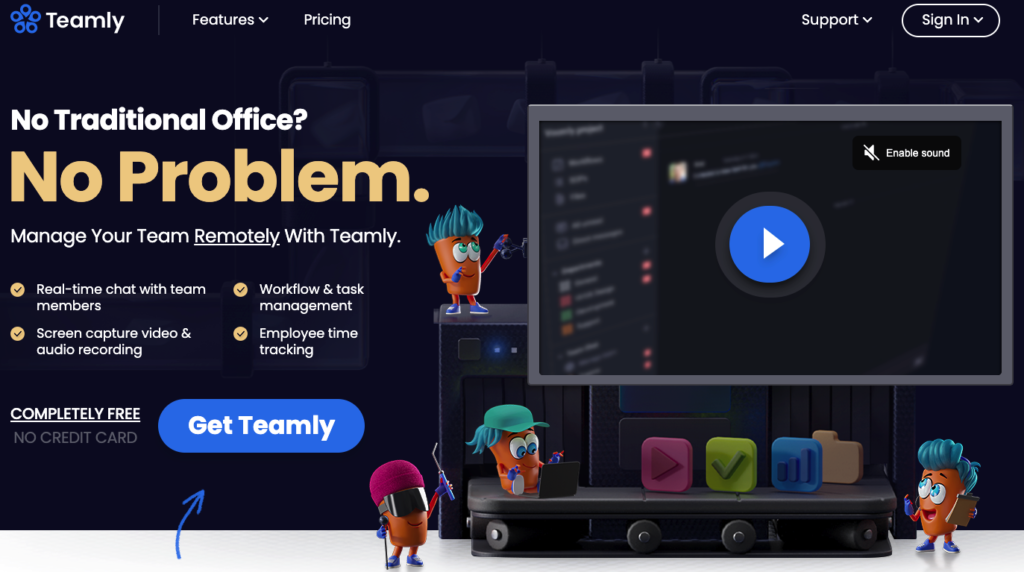This article showcases our top picks for the Best Project Management Software For Interior Designers. We reached out to industry leaders and experts who have contributed the suggestions within this article (they have been credited for their contributions below).
We are keen to hear your feedback on all of our content and our comment section is a moderated space to express your thoughts and feelings related (or not) to this article This list is in no particular order.
Ivy
This product was recommended by Steven Walker from Spylix

Ivy is a user-friendly version of Studio Designer with a minimal learning curve. Ivy integrates seamlessly with QuickBooks Online, allowing you to accept credit cards easily. Because expected ship dates are automatically entered into the Project Calendar in Ivy, you may monitor project timelines without entering any additional data. Ivy will keep adding features to make it a strong contender for use by interior designers. It takes two programs to do what Studio Designer can do in one, notwithstanding how user-friendly it is. Ivy is still quite popular among interior designers, even though Studio Designer is more adaptable.
Mydoma
This product was recommended by Jane Hammitt from FastPeopleFinder

Don’t be put off by the fact that Mydoma Studio is the new kid on the block. It offered a lot of sophisticated capabilities that allowed interior designers to manage procedures without sacrificing their originality. The Project board in Mydoma Studio is one of the most useful tools. Interior designers may use project boards to keep track of all project-related information and share it with clients. This makes maintaining transparency easy and ensures that both the customer and the interior designer are on the same page. Mydoma Studio, on the other hand, lacks a built-in accounting capability and requires QuickBooks online interface for accounting tasks.
DesignDocs
This product was recommended by Steven Walker from Spylix

DesignDocs is a complete project management and online accounting system for the interior design sector. DesignDocs is a full suite of business management solutions for interior designers, founded by a husband and wife partnership (a Chartered Accountant and a Designer). In addition, the system provides important financial information, allowing designers to obtain a better grasp of their profit margins and discover areas in their firm where revenue may be increased.
Teamly
This product was recommended by NA

Teamly is a highly-rated project management platform that offers a suite of tools designed to streamline task management and time tracking. With its intuitive interface and customizable features, Teamly makes it easy for teams to stay organized and efficient. The platform offers a range of features, including custom workflows, task boards, and automation capabilities, making it a versatile choice for businesses of all sizes. Teamly also integrates seamlessly with various third-party tools, enhancing its functionality and ease of use. Whether you’re managing a remote team or coordinating large-scale projects, Teamly provides the tools you need to keep your operations running smoothly.
ClickUp
This product was recommended by Lyle Florez from EasyPeopleSearch

ClickUp is a top-rated project management company that offers project management software with a clean, versatile, and intuitive interface that makes it simple to manage your tasks. You have less time on your hands as an interior project manager or as a business owner with a busy schedule.
Gather
This product was recommended by Lyle Florez from EasyPeopleSearch

Gather’s interior design project management software comes to the rescue here. One of the best features of Gather software is that it allows you to see all of the project parts in one location, which may save you a lot of time. Gather provides everything you need in one location, whether you need to examine logistical specifics, decide product assembly, or give clients a budget update.
Binary Management
This product was recommended by Kimberly Silva from FindPeopleFirst

The developers of this tool built it focused on the interior design industry. It consolidates the components of costing, tracking, reporting, and planning interior design projects. BM can monitor project deliverables and the time per deliverable through its tracking feature. It can also generate an average design fee when fed with design scope, number of rooms and start date information. This software is cloud-based and accessible from anywhere while on the move. Payment options include free, team, enterprise, and custom plans.
Indema
This product was recommended by Lyle Florez from EasyPeopleSearch

Interior designers, decorators, and interior design businesses will benefit from Indema. Because it was specifically designed for the interior design sector, Indema distinguishes it from a conventional project management software. It automates practically every aspect of the business. Users are no longer saddled with cumbersome software that is difficult to use because of the platform’s streamlined and user-friendly design. With Indema, you can make your management easier.
Asana
This product was recommended by Lily Wili from Ever Wallpaper

Asana project management software is a work management platform that users can access from the web as well as smartphones. Here the interior designers can create their spaces to manage the projects. They can very easily establish, track and accomplish the work. The tasks can be assigned to the relative resources and they can update the real-time status. The accounting and finances can also be maintained for better work tracking.
















